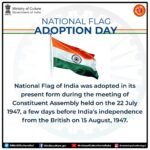TRAI rules in favour of Net Neutrality

The Telecom Regulatory Authority of India (TRAI) barred telecom service providers from charging differential rates for data services, effectively prohibiting Facebook’s Free Basics and Airtel Zero platform by Airtel in their current form. For instance, providing limited free data that enables user to access the entire Internet is not prohibited. For example, a consumer could not be charged differently based on whether she was browsing social media site A or B, or on whether she was watching streaming videos or shopping on the Internet.
- Anything on Internet cannot be differently priced.
- Tariff for data services could not vary on the basis of the website/application/ platform/ or type of content being accessed.
- This prohibition would not apply to other forms of tariff differentiation that were entirely independent of content.
- No service provider shall offer or charge discriminatory tariffs for data services on the basis of content.
- No service provider shall enter into any arrangement, agreement or contract, by whatever name called, with any person, natural or legal, that the effect of discriminatory tariffs for data services being offered or charged by the service provider for the purpose of evading the prohibition in this regulation
Reduced tariff for accessing or providing emergency services, or at times of public emergency has been permitted.
Financial disincentives for contravention of the regulation have also been specified; TRAI said a fine of Rs. 50,000 would be levied per day, subject to a maximum of Rs. 50 lakh, for any violation of these regulations by the service providers. An exemption, however, has been made for offering emergency services.
THE CONTEXT
Airtel announced a new service called Airtel Zero where it will offer customers free access to certain apps and services, with cost of this data traffic being borne by the partner. For example, if Flipkart signs up as an Airtel Zero partner, you will not be charged for data you use while accessing Flipkart, and Airtel will bill Flipkart for that session.
While that may sound great on paper, experts say that in the long term it’s against consumer interests, because consumers are more likely to use free services. They say smaller companies, who cannot afford to subsidise consumer access to their websites and services, are likely to lose out, stifling innovation in the country, which means fewer options for consumers in the long run.
Of course Airtel is not alone in this, with Facebook’s Internet.org operating on a similar principle, and various other apps have tie-up with telcos in the past to offer consumers free access to their service
Net neutrality is a principle that says Internet service providers should treat all traffic on their networks equally. That means companies like Airtel should not block or slow down access to any website or content on the Web – for instance, to benefit their own services over those of competitors.
The concept that all data on the internet should be treated equally by corporations, such as internet service providers, and governments, regardless of content, user, platform, application or device. Network neutrality requires all Internet service providers (ISPs) to provide the same level of data access and speed to all traffic, and that traffic to one service or website cannot be blocked or degraded. ISPs are also not to create special arrangements with services or websites, in which companies providing them are given improved network access or speed.






0 Comments